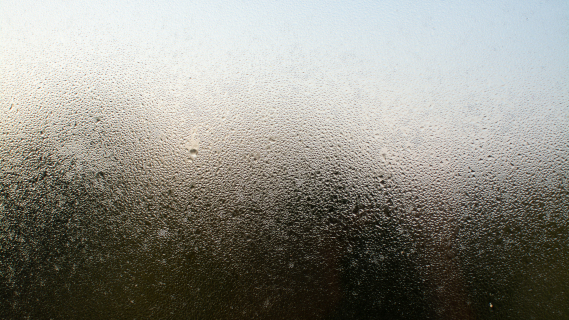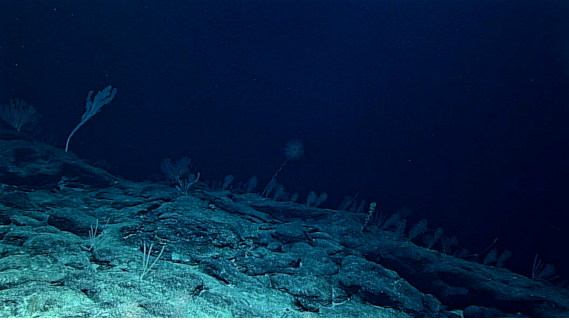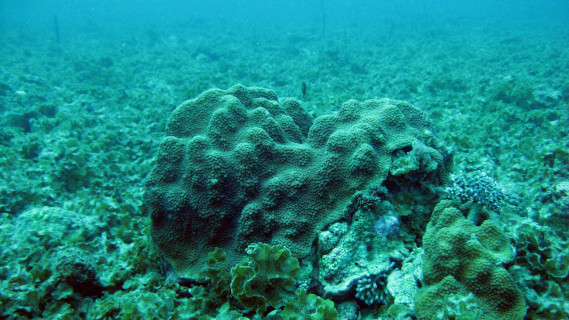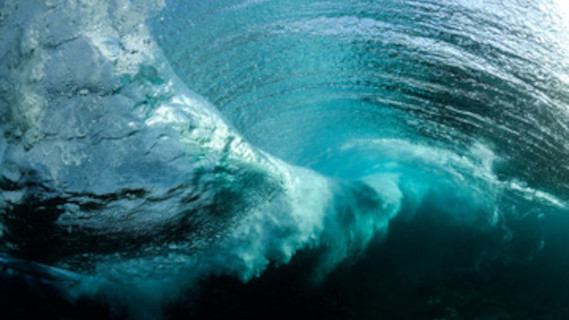Oceans

Effects of Climate Change on the Oceans
Climate change and global warming have a direct impact on oceans: not only the temperature of water rises, but also acidification increases as they absorb 22% of man-made CO2 emissions. Deoxygenation also has been noticed, all this leading to changes in oceanic circulation and chemistry, not to mention rising sea levels, and the threat to the diversity of marine species. Studies have shown that from 1971 to 2010 the oceans absorbed 93% of the additional energy stored on Earth, as a result of this sea surface temperature has increased by 0.8°C from 1880 to 2015; even the deepest layers of water have warmed up. Sea creatures are under increasing stress due to warming and acidification of the oceans.
Since gases dissolve more easily in cold liquids than in hot ones, warmer seas are able to absorb less man-made CO2 emissions. As heating progresses, the buffering function of the oceans becomes less and less efficient.

Water vapor feedback
Hot air absorbs more water vapor than cold air. Therefore an increase in air temperature causes an increase of water vapor contained in the atmosphere. As water vapor is also a greenhouse gas, its increase in the atmosphere causes a strengthening of the greenhouse effect, provoking a further increase in temperature. This gives rise to another vicious circle, known as “water vapor feedback”, which causes global warming to accelerate.

Sea level rise
The increase of the emissions of greenhouse gasses causes the so-called global warming and one of the consequences is the increase of the temperature of the oceans’ water. This leads to an increase of the volume of water which expands, causing sea levels to rise. In addition, glaciers and ice caps melt as a result of rising atmospheric temperatures. As a result, from 1880 to 2013 sea level increased by 23 cm. In the transition from ice ages to hotter periods, the melting of large amounts of ice caused a much faster rise in sea level than today. However, if we compare the average annual sea level rise in the last 15 years, in the last century and in the last two thousand years, it can be observed that sea level is rising faster due to climate change.

More than 80 percent of the oceans are unexplored
It is estimated that more than 80 percent of the oceans are unmapped and unexplored, leaving open the question of how many species are yet to be discovered, especially if we refer to the deep waters of oceans which are not reachable by man even with the most advanced technology so far. However it is proved that oceans are the natural habitat of some of the world’s oldest creatures: for example it is estimated that jellyfish, one of the first organisms to have inhabited the oceans, have been around for more than half a billion of years. Other organisms such as coral also are deemed long-lived species but are now threatened by the global warming which is causing the rise of oceans’ water temperature.

Acidification of the oceans
The impact of ocean acidification on marine creatures is evident: coral reefs are disappearing in almost all the areas where present, posing a serious threat to this delicate marine ecosystem and to the other species and organisms like oysters that make hard shells and skeletons by combining calcium and carbonate from seawater. In fact an increase of the pH (acidification) results in fewer carbonate ions available for calcifying organisms to build and maintain their shells, skeletons, and other calcium carbonate structure. Shells and skeletons if the pH gets too low, can even begin to dissolve.

Fisheries & seafood
Healthy oceans means healthy fish populations and thus a secure source of food. Seafood and oceans’ resources in fact play an essential role in feeding the world’s growing population and coastal communities in particular depend on sustainable fisheries. It is our responsibility to safeguard oceans thus avoiding dumping plastic waste and other pollutants (e.g. urban discharges, agricultural runoff) and also repairing the damages caused by oil leaks. This is of paramount importance together with a sustainable management of fisheries if we want to preserve oceans’ healthy fish populations for future generations.
The degradation of coastal and marine ecosystems poses a serious threat not only to local communities and to local fishers, indigenous and other coastal communities, but also to international business organizations and to the tourism industry which are already seeing the effects of climate change and contamination of these delicate ecosystems.

Ocean currents
Oceans’ water is on the move affecting our climate, and naturally our entire ecosystem. Ocean currents play a fundamental role in regulating the marine ecosystems and they are represented by the continuous and direct movements of ocean water.
Ocean currents are present both on the ocean’s surface as well as in its depths, and they flow both locally and globally. Surface currents are driven by global wind systems fueled by the energy from the sun. These surface currents transfer heat from tropics to the polar regions, whie the Gulf Stream which originates in the tropical Caribbean moves along the US East Coast across the Atlantic towards Europe keeping Northern Europe warmer than other places at the same latitude. Deep ocean currents are different: in this case differences in water density which results from the variability of water temperature and salinity, cause these deep currents. This particular process is known as thermohaline circulation. Substantially cold-salty water literally sinks to the ocean bottom, and surface water flows in to replace the sinking water. These different sets of ocean currents are a critical part of Earth’s climate system and naturally regulate ocean nutriment and CO2 cycles.







